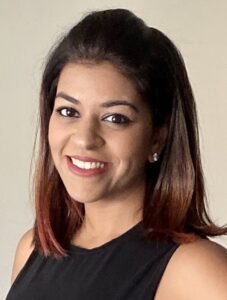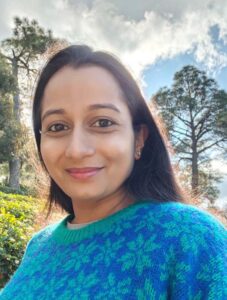 Ruchi Chhabria
Ruchi Chhabria
Founder and Director
Do what you love and love what you do – these are certainly words to live by and Ruchi Chabbria chose exactly this.
After having head a retail brand for jewellery for 6 years, it’s the birth of her son Veer that made her realize her true calling – children and education.
As a trained bharatanatyam dancer, she has taught many children under the guidance of her guru and she knew then, that working with children made her the happiest. But it was only after she became a mother, she decided to give in to her passion and founded Kinderhome Montessori.
After Ruchi learned about the Montessori way of education, she was convinced that it certainly is the best way to teach the child not only what the books say, but the way of life, the way to be your own person and be independent.
She did an in-house training in infant community of Montessori which further strengthened her belief in Montessori.
Her main goal continues to be, to lead by example and inspire teachers and parents to listen and follow the child. The best gifts are “lessons in life” and that gift is found in the Montessori way of teaching. They enable the child to grow and develop at their own pace and time in a happy and carefully designed Montessori environment.
These skills follow the children’s next steps into their school and will sub-consciously be a part of their everyday learning until they graduate and step out into the world to be the person they are meant to be.

 Khushboo Ghelani
Khushboo Ghelani